The beaded bandolier bag is a distinctive form created by American Indians in the Great Lakes and Plains regions beginning in the mid-19th century. These large, vividly colored and intricately beaded bags were a central element of men’s formal dress for dances and ceremonies. Wearing two bags at once, as Charlie Congray does in the image below, was a sign of prestige and status.
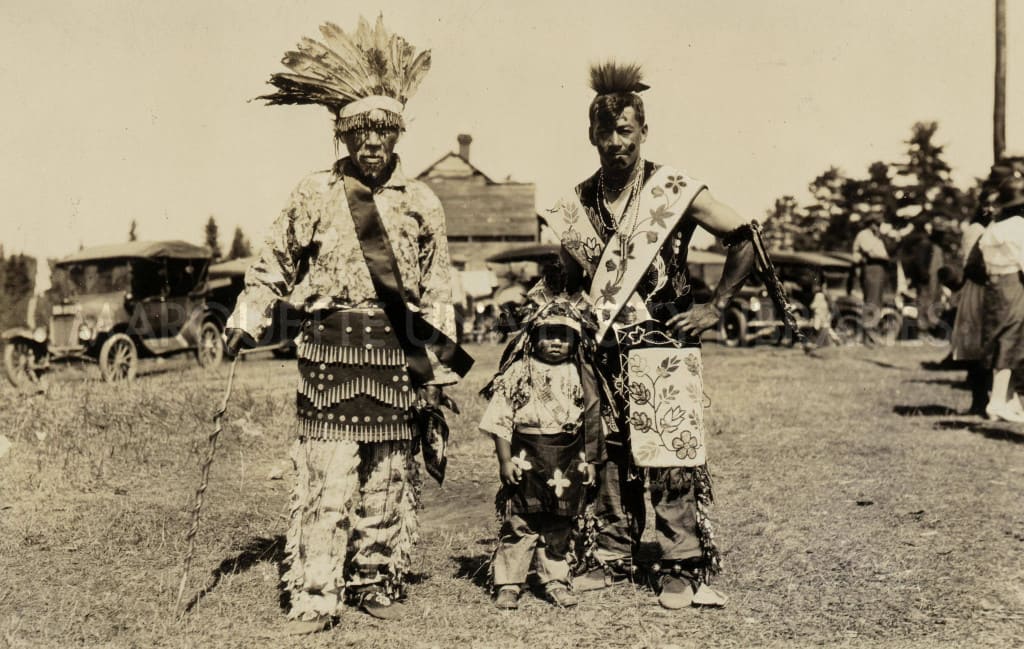
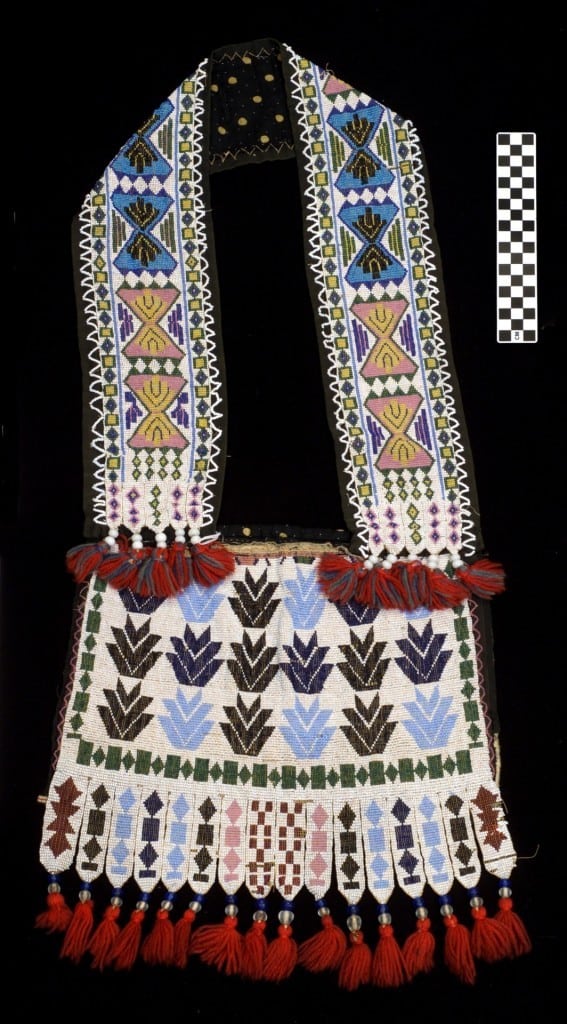
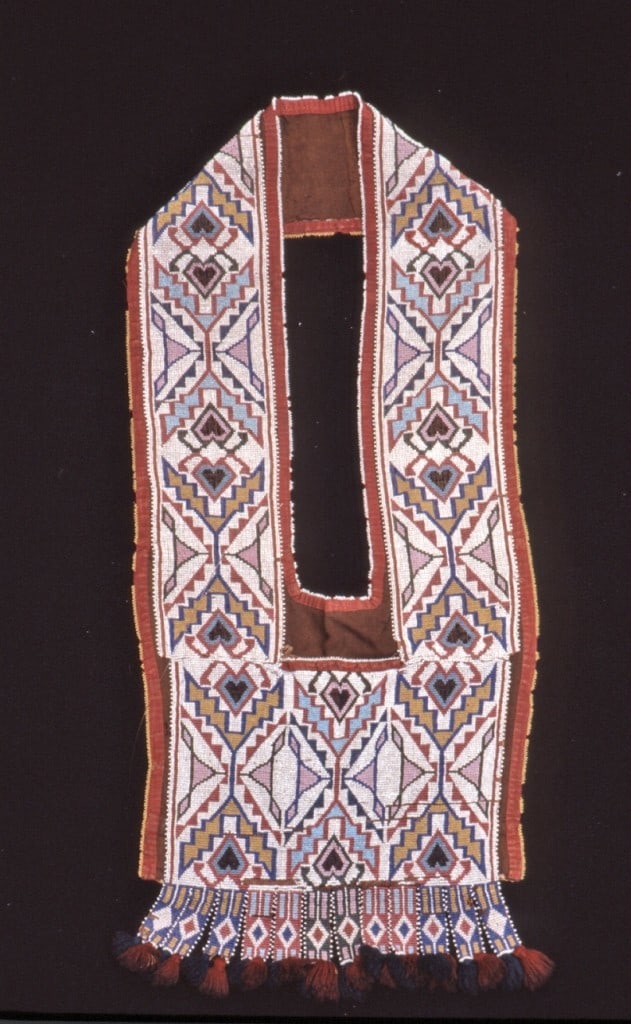
Because bandolier bags were traditionally given as gifts during intertribal gatherings, it can be difficult to trace the origins of individual bags. According to the records of the Milwaukee Public Museum, the bag at left was probably made in northern Wisconsin and is Menominee in origin.
Many Anglo-American traders and collectors snapped up these striking works of art, which also makes it difficult to track their specific histories. According to the records of the Milwaukee Public Museum, the bag at right was donated to the Museum by Odelia Abel and was collected by her father, H. L. Mumm, who operated the “Indian Trading Post” in Tomahawk, Wisconsin in the early 20th century.
These detail shots show the fine handiwork that goes into the creation of a bandolier bag. Each bag is hand-decorated with thousands of tiny glass seed beads. The first example uses a technique known as spot-stitching or applique to create curving floral forms, while the second example was woven on a bead loom, resulting in a more linear, geometric pattern.
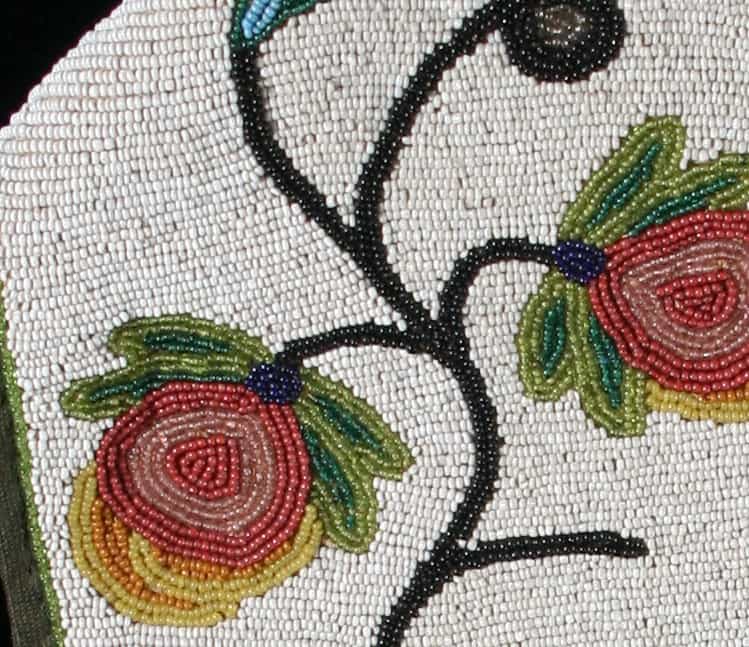
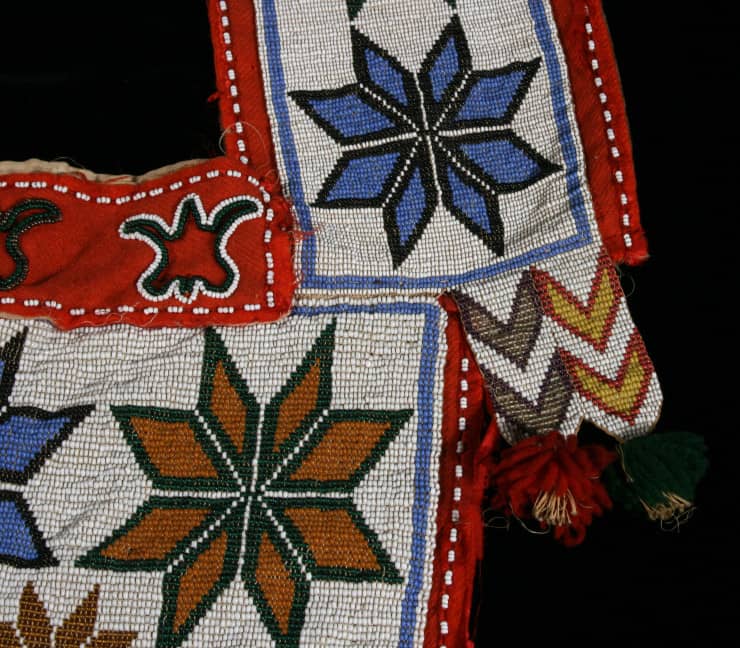
Most bandolier bags are made of wool or other cloth, with applied panels of beading. The body of the bag shown below is made from a more unusual material—tanned deer hides, with hoofs attached. The beaded design on the strap includes deer heads (with impressive sets of antlers) in blue and red.
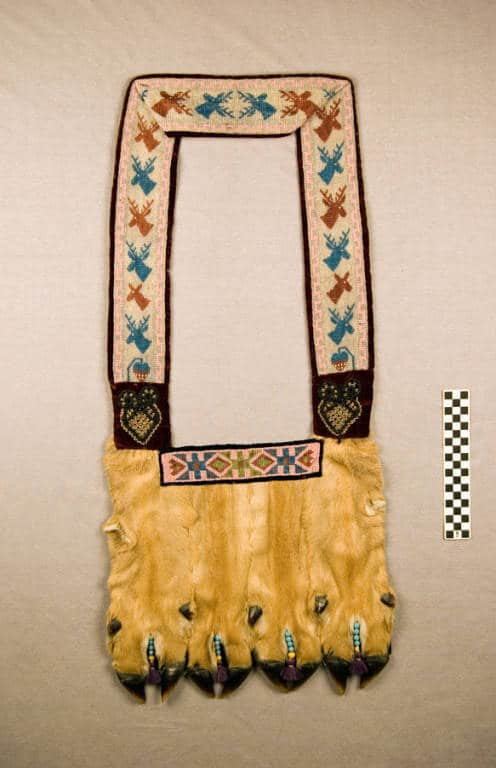
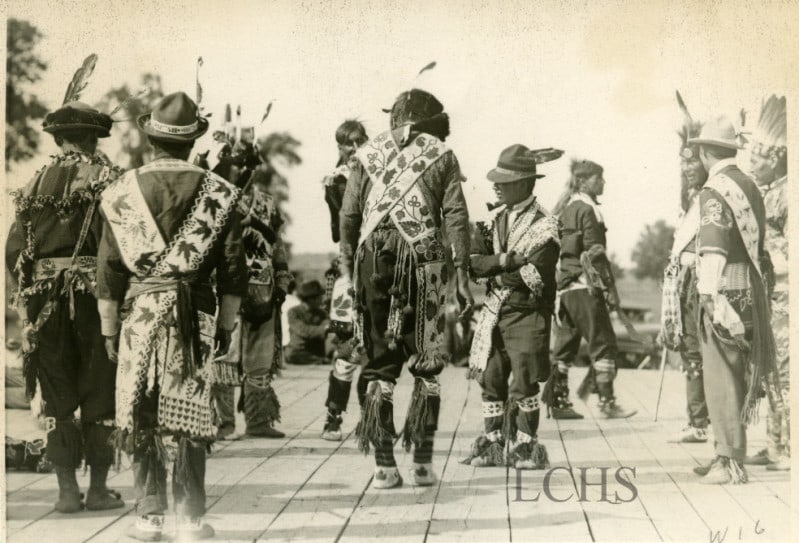
Sources
The images in this post come from the following digital collections. Click the links to browse the full collections.
- Bandolier Bag Collection, Anthropology Collections, Milwaukee Public Museum
- Bureau of Catholic Indian Missions, Marquette University Raynor Memorial Libraries
- A. J. Kingsbury Photographs, Langlade County Historical Society
- Logan Museum of Anthropology, Beloit College
- Wisconsin Decorative Arts Database, Wisconsin Historical Society
Read more about bandolier bags
- Steve Cotherman, “Art Traditions of the Anishinabe: Bandolier Bags From the Collection of the Madeline Island Museum,” Wisconsin Magazine of History 93:4 (2010)
- Beverly Gordon, “The Great Lakes Indian Bandolier Bag: Cultural Persistence and Elaboration,” Dress 19 (1992)
- Andrew Hunter Whiteford, “The Origins of Great Lakes Beaded Bandolier Bags,” American Indian Art Magazine 11:3 (Summer 1986)




You must be logged in to post a comment.